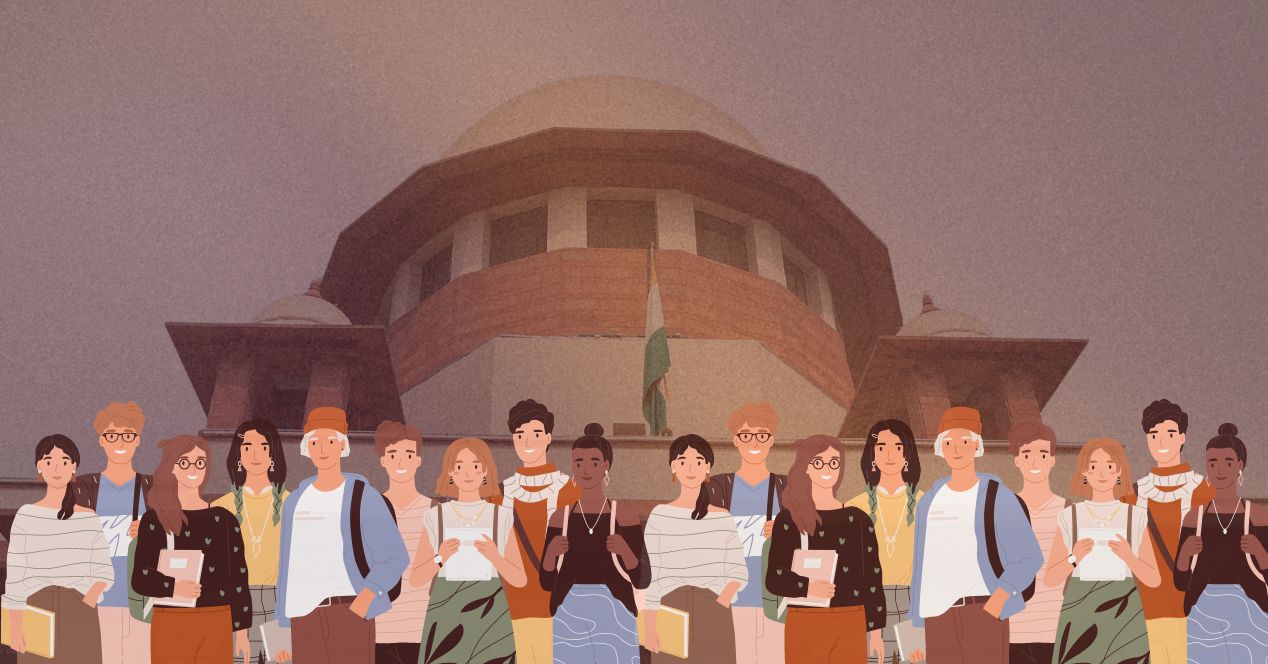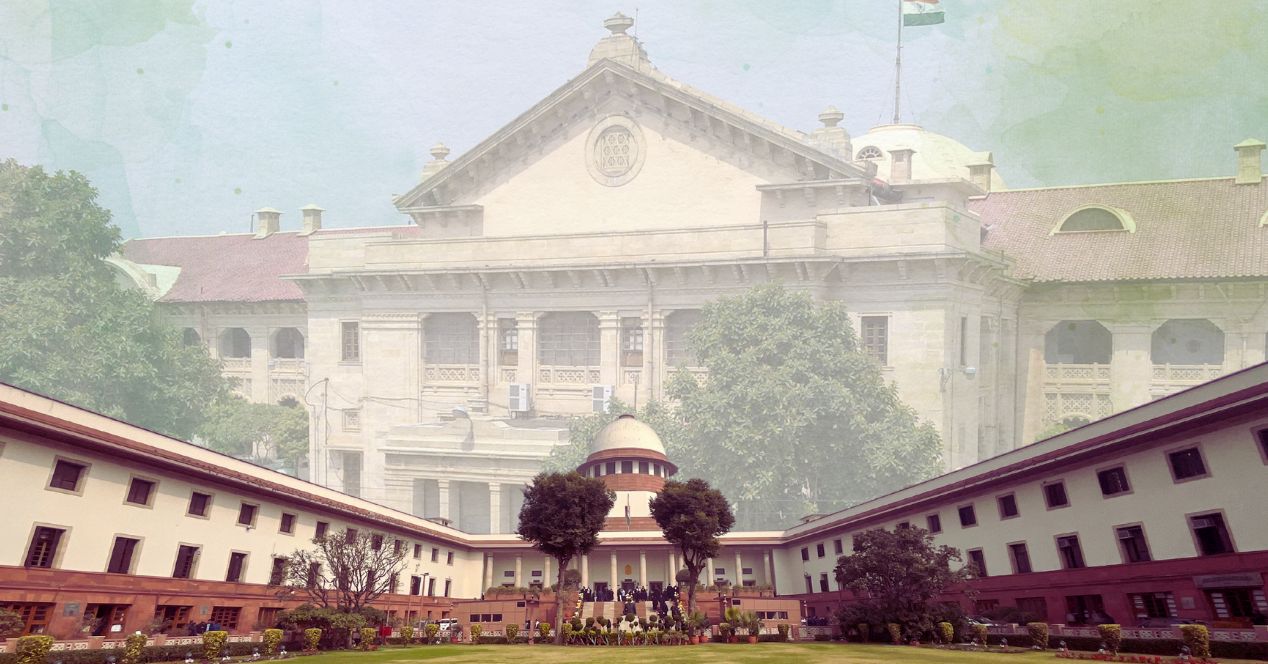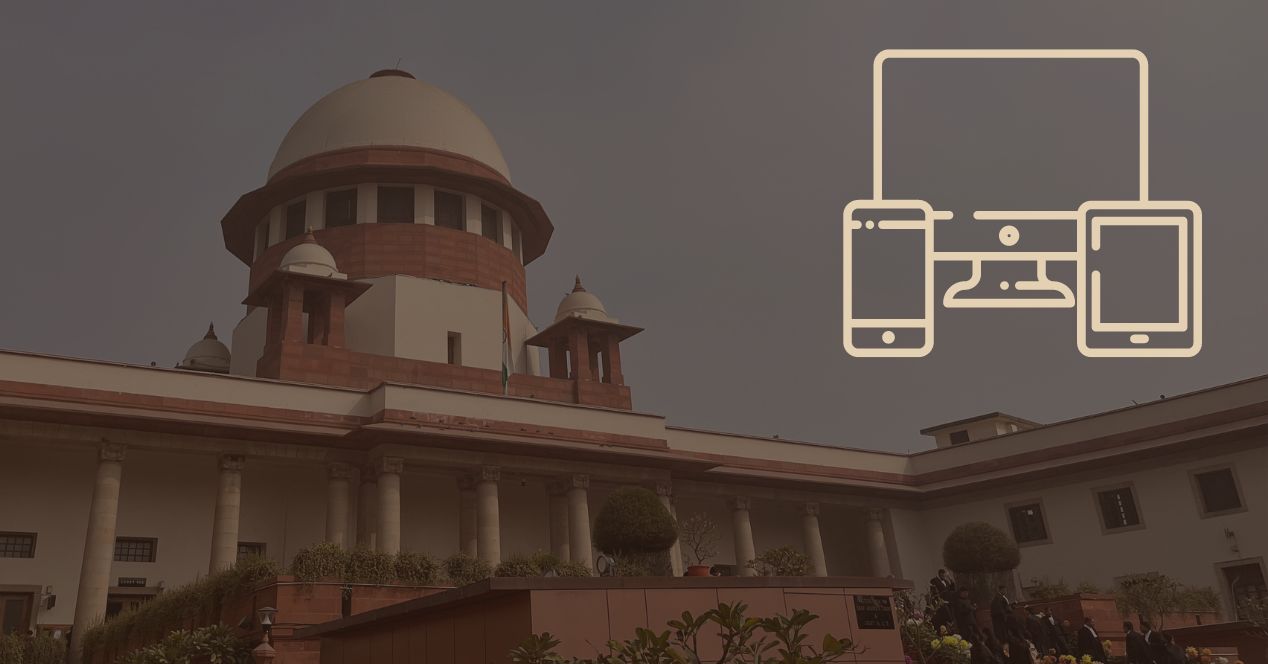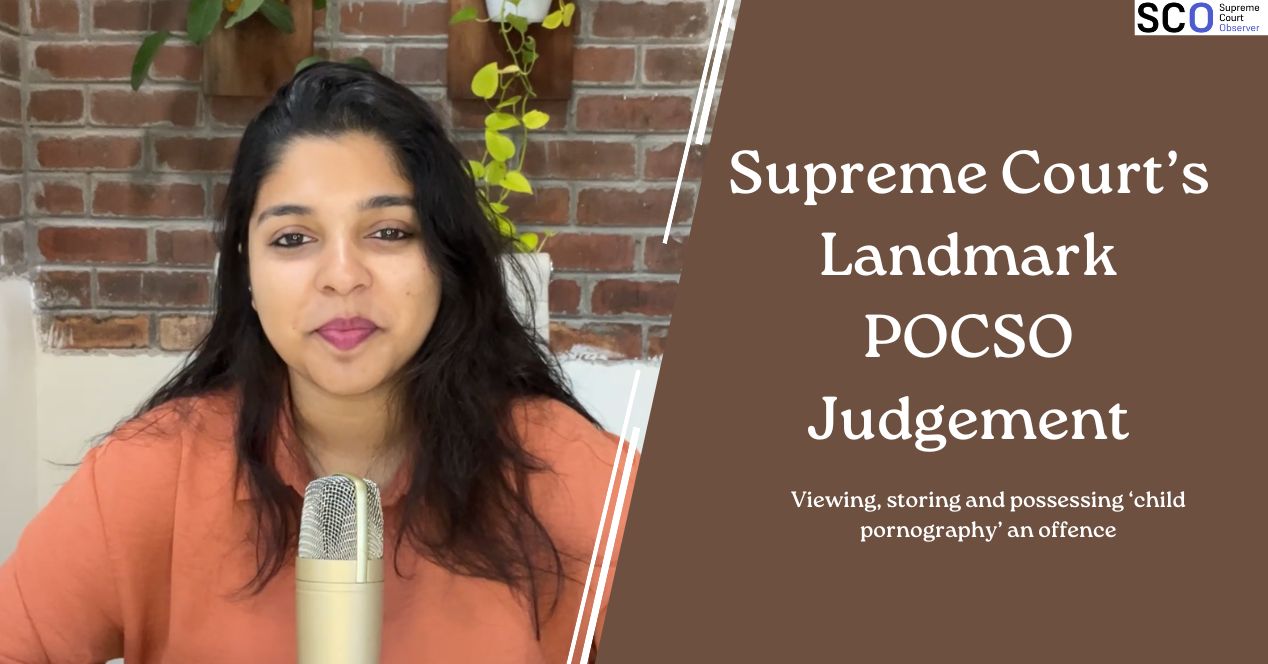Analysis
“Not a precedent”: Supreme Court holds back from sentencing POCSO convict
In a rare judgement, the Supreme Court held that the imprisoning of the POCSO convict would worsen victim’s life
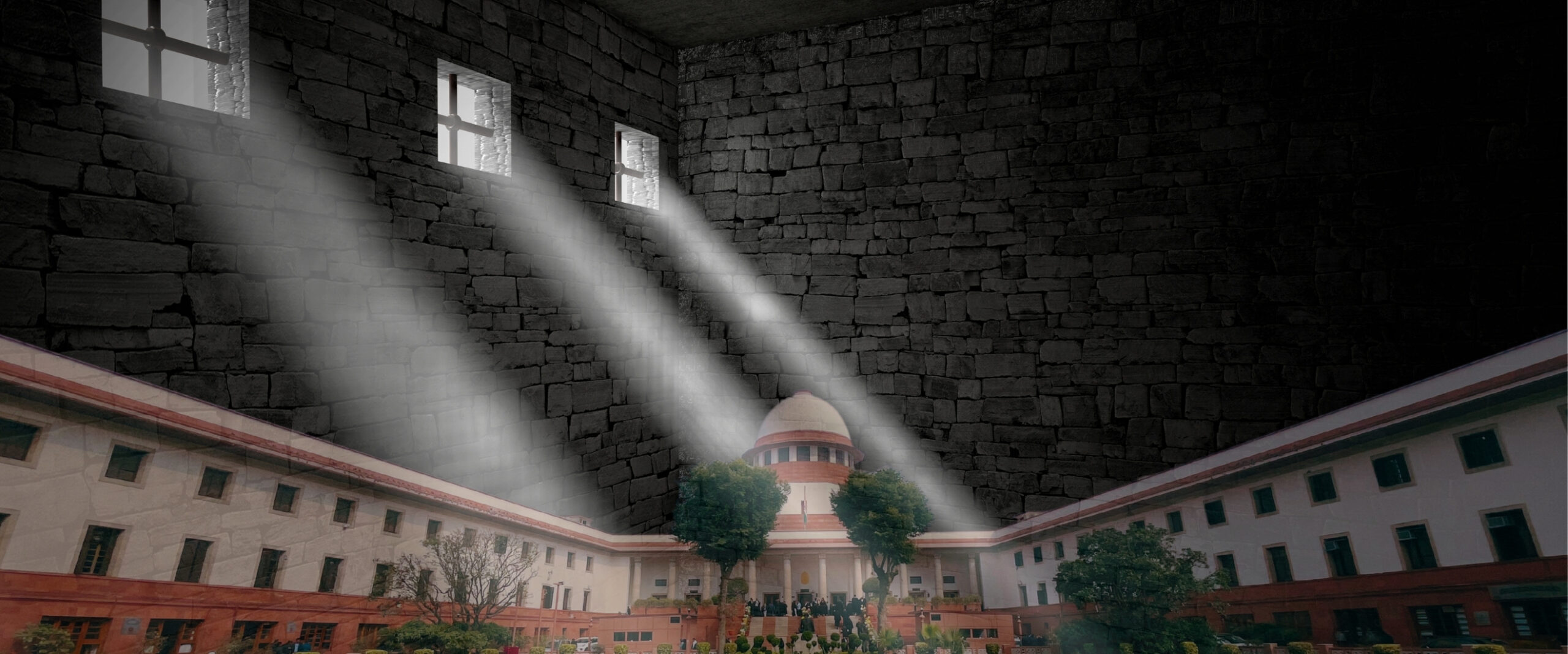
In Re: Right to Privacy of Adolescents
On 23 May 2025, the Supreme Court spared a person convicted under The Protection of Children from Sexual Offences Act, 2012 (POCSO) from a 20-year jail sentence. In a unique Judgement, the Court exercised its wide powers to “do complete justice” under Article 142 and declared that the convict will not undergo imprisonment. It concluded that his imprisonment would cause further harm to the victim. The two-judge Bench, consisting of Justices A.S. Oka and Ujjal Bhuyan, acknowledged the systemic failures in the implementation of the POCSO Act that exacerbated the victim’s trauma.
The story so far
On 20 August 2024, the same Bench had set aside a Judgement of the Calcutta High Court which reversed the Trial Court’s conviction for rape and kidnapping under the POCSO Act, with a rigorous imprisonment of 20 years. The POCSO victim had told the High Court that her relationship with the accused was consensual and that she had married him “out of her own volition.” She had a child with the accused and had been cast out by her own family.
Along with its directions, the High Court had also made what the Supreme Court described as “objectionable” comments on the sexuality of adolescents. Justices Chitta Ranjan Dash and Partha Sarathi Sen of the Calcutta High Court wrote that consensual sex among adolescents was a result of “peer pressure, influence by social media, free availability of porn materials and free mixing with friends of opposite sex.” Their Order vested a “duty/obligation for every female adolescent” to protect their dignity, integrity and “control” their sexual urges.
At the Supreme Court
The Supreme Court took suo moto cognisance of the case. It came down heavily on the High Court’s comments and restored the conviction of the accused for offences under Section 6 of the POCSO Act and Sections 376(2)(n) and 376(3) of the Indian Penal Code, 1860 (IPC). It clarified that consent is not an exception to rape under the POCSO Act. However, it upheld the acquittal for kidnapping (Section 363) and kidnapping with the intent to compel marriage or for illicit intercourse (Section 366) under the IPC. The Court set up a committee of three experts, including a clinical psychologist and a social scientist to assess the state of the victim and her life. The sentencing of the convict would be held after the Court reviewed the Committee’s report.
The Committee submitted a preliminary report in October 2024 and a final report in January 2025. The preliminary report documented the victim’s difficulties navigating the legal system to secure the accused’s release. It noted that the legal proceedings caused emotional and financial hardship for the family. The Committee recommended financial aid for the child and educational and financial rehabilitation for the victim.
The final report provided detailed accounts from interviews with various individuals, including the victim, the accused, their families and system stakeholders. It highlighted significant systemic failures in implementing child protection measures and the POCSO Act. The report made a crucial conclusion: it was not the legal crime, but the subsequent legal battle that traumatised the victim. The report recommended that the family unit—consisting of the convict, victim and their child—remain intact for the best interest of the victim and her child. It recommended that the state provide financial, legal, and educational support to the family.
Supreme Court: “The facts of the case indicate failure of the concept of welfare state”
The Supreme Court decided that the POCSO convict will not undergo a jail sentence. It recognised the collective failure of society and the State machinery in protecting the victim. It prioritised the victim’s rehabilitation and the stability of her family unit.
Justice Oka wrote:
“Though the victim did not treat the incident as a heinous crime, she suffered because of it. This was because at an earlier stage, the victim could not make an informed choice due to the shortcomings of our society, our legal system and her family. In fact, she did not get any opportunity to make an informed choice. The society judged her, the legal system failed her, and her own family abandoned her. Now, she is at a stage where she is desperate to save her husband. Now, she is emotionally committed to the accused and has become very possessive of her small family.”
The Bench gave importance to the choices made by the victim (who is now an adult), and allowed her to continue living with the accused. They concluded that sending him to jail would cause further harm to her and their child.
Exercising its power under Article 142, the Bench decided to not award a prison sentence despite the mandatory minimum 20 years prescribed by law. The Court directed the State of West Bengal to act as her guardian and explicitly stated that the decision should not be considered as a precedent.
Directions given by the Court
The Supreme court directed the State Government of West Bengal to:
-
- Act as a true guardian of the victim and her child.
- Provide a better shelter to the victim and her family within the next few months.
- Bear the entire expenditure of the victim’s education up to 10th standard, and her undergraduate degree if she chooses to pursue the course.
- Bear the entire expenditure of the child’s education up to 10th standard
- Ensure she is educated in a very good school in the vicinity of the victim’s residence.
- Take the assistance of NGOs or public-spirited citizens for the purpose of securing the debts incurred by the victim as a one-time measure.
- File compliance reports detailing the implementation of these directions. The first report is due by 15th July 2025 and subsequent reports every six months.
They directed the Secretary of the Ministry of Women and Child Development to appoint a Committee of experts to look into the suggestions of the learned amicus curiae in the case. The Union Committee was directed to submit a detailed report before 25 July 2025.

